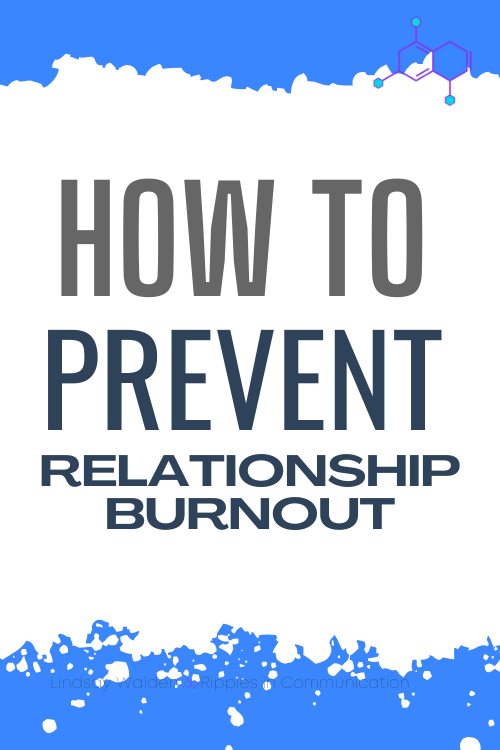How Emotional Check-Ins Prevent Relationship Burnout
Most people think of burnout as something that only happens at work. But relationship burnout? That’s just as real—and often more emotionally taxing. It doesn’t happen overnight. It builds quietly, in the absence of emotional connection, shared check-ins, and intentional care.
You might still love each other deeply… but feel like you’re going through the motions. Conversations feel flat. Conflicts loop without resolution. You feel emotionally tired even when nothing "bad" is happening. That’s burnout—and it often stems from emotional neglect, unspoken stress, and feeling unheard over time.
But here’s the truth: you can prevent this kind of burnout before it becomes a breaking point. The solution isn’t grand gestures or constant communication—it’s structured emotional check-ins. When you and your partner regularly pause to tune in to your emotional needs, everything changes: stress lessens, connection deepens, and burnout gets replaced with renewal.
Have you grabbed your FREE CNT Toolkit Sampler yet? It’s packed with science-backed tools designed to help you regulate emotions, manage stress, and develop deep self-awareness. If you’ve ever felt overwhelmed by your reactions or stuck in negative thought patterns, this toolkit will give you the proven strategies I use with clients to help them strengthen emotional neutrality, rewire unhelpful responses, and build lasting resilience. Inside, you’ll find practical exercises and guided reflections to help you navigate challenges with clarity and confidence. Enter your email below, and I’ll send it straight to your inbox!
Why Burnout Happens in Relationships (and How to Prevent It)
Burnout happens when emotional needs are consistently unmet, unspoken, or unacknowledged. You may feel like your partner should know what’s going on with you—or maybe you don’t even know how to put your emotions into words. Over time, this silence builds into emotional distance.
From a neuroscience perspective, this emotional disconnect decreases dopamine and oxytocin (the “bonding” hormones), making the relationship feel less emotionally rewarding. At the same time, when stress builds without support, your cortisol levels spike, putting your brain into a constant low-level threat state.
What does that look like in your day-to-day relationship? You start avoiding conversations. Little things feel like big deals. You forget the last time you really felt connected.
That’s where emotional check-ins come in. They shift your relationship out of autopilot and into intentional care.
How Emotional Check-Ins Improve Emotional Safety, Trust, and Connection
Emotional check-ins aren’t just “talking things out”—they’re about helping your nervous system and your relationship feel safe again. They allow both partners to say:
“Here’s where I’m at, emotionally. Here’s what I need. Here’s what I appreciate about you.”
That kind of structured vulnerability helps rewire your brain toward connection instead of defense. Instead of reacting in the moment, you create time to reflect and respond intentionally. And over time, your emotional circuits become stronger and more regulated—making your relationship feel more secure and resilient.
When done consistently, emotional check-ins can:
Reduce emotional withdrawal and resentment
Increase intimacy and emotional availability
Improve communication by addressing emotional needs early
Help each partner feel seen, heard, and valued
This is how we prevent emotional burnout: by creating a rhythm of emotional care before disconnect sets in.
4 Steps to Start Emotional Check-Ins That Actually Work
You don’t need hours of deep conversation every day. What you need is intentional consistency—and a structure that makes these check-ins feel safe, focused, and productive.
1. Schedule Your Check-Ins
Daily: 5-minute check-in about emotional state and support.
Weekly: 20–30 minutes for deeper emotional processing and appreciation.
Monthly: 1-hour discussion around growth, challenges, and shared goals.
💡 CNT Journal Prompt: When and how often do we want to check in? What would help us stay consistent?
2. Follow a Clear Emotional Framework
Use this 4-part model to keep your check-ins simple but impactful:
Emotional Awareness: Each partner shares how they’ve been feeling.
Appreciation: Share one thing you appreciated about each other this week.
Stress/Concerns: Name one source of emotional tension or pressure.
Support: Ask, “What’s one small way I can support you emotionally right now?”
💡 CNT Prompt: After your check-in, write one takeaway and one small action step. Revisit this weekly to track your emotional growth.
3. Create Safety So Real Honesty Can Happen
The best check-ins aren’t the longest—they’re the safest. Emotional honesty requires emotional safety. That means no interruptions, no minimizing, and no defensiveness. Instead, practice deep listening:
Say things like:
“That makes sense. Tell me more.”
“Thanks for being honest—I didn’t know you were feeling that.”
“I hear you. How can I support you?”
It’s not about solving everything in one conversation—it’s about proving you care enough to pause, listen, and stay present.
💡 Try This: Reflect on the last time you didn’t feel heard. What would have helped you feel safe in that moment? Share this with your partner.
4. Use Journaling to Deepen Your Emotional Awareness
Sometimes it’s easier to write it first. If expressing emotion feels hard, try writing notes to each other before your verbal check-ins. You can even journal privately, then share only what feels helpful.
Here are two emotional journaling exercises to try:
High & Low Reflection: Each partner shares one emotional high and one challenge from the week. Write it down first, then talk through it.
Unspoken Letter: Write a letter expressing a feeling you haven’t verbalized. Share it when you feel ready—or use it to process your emotions privately.
💡 CNT Prompt: What emotion have I been holding in that needs space today?
Final Thought: Emotional Burnout Is Preventable
You don’t have to wait until you’re distant or disconnected to start paying attention to each other’s emotional worlds. Regular emotional check-ins are like emotional maintenance: simple, intentional moments that keep your relationship strong—even through stress, chaos, and change.
If you want to start making emotional check-ins a regular habit, I’ve made it easy for you.
👉 Grab the CNT Shared Relationship Journal to start tracking your emotional rhythms, deepening connection, and building lasting intimacy—one conversation at a time.






